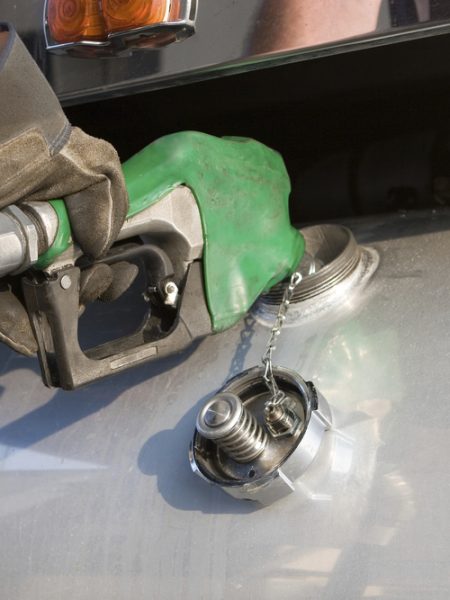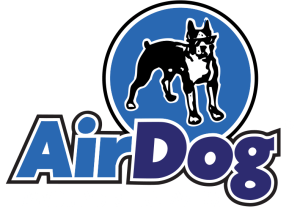

Getting the most out of your heavy-duty diesel engine requires keeping your fuel as clean as possible before it reaches your engine. Today’s diesel engines are built to high tolerances—a remarkable achievement by engineering standards, delivering better performance than many would have thought possible a few decades ago. But those tolerances are not well-suited to contaminated fuel. Hence the importance of cutting-edge filtration systems like AirDog®.
Diesel fuel used to contain significantly more sulfur, along with a range of other components for lubricity. Today’s diesel fuel is much cleaner—as it leaves the refinery—but there are still many opportunities for contaminants to enter the fuel before it reaches your fuel tank.
Sulfur is an element that occurs naturally in fuels derived from oil, including diesel. When the sulfur is burned, it releases particulates into the air which contributes to air pollution. It also creates sulfuric acid, which can corrode engine components.
Starting in the 1990s, the European Union started requiring oil refineries to significantly reduce the amount of sulfur in diesel fuel to lower the negative environmental impacts of diesel fuel use. The EU pushed for the steady reduction of sulfur over the years, and the United States hopped on board in 2006 with the requirement for the near-universal use of Ultra Low Sulfur Diesel (ULSD). By 2010, almost all the diesel used in the EU and the US was ULSD.
Today, diesel engines produce about 10% less carbon dioxide than gas engines in the same category, which is quite an achievement for diesel in general. According to the US Energy Information Association, “Using ULSD fuel and advanced exhaust emission control systems can reduce vehicle particulate emissions by up to 90% and emissions of nitrogen compounds (NOx) by 25% to 50%. ULSD fuel helps reduce emissions in older engines as well.”
Diesel fuel lubricity is a term that refers to a fuel’s lubrication abilities. With diesel fuel, the expectation is that the fuel will have a basic level of lubrication that will prevent damage to an engine’s parts while in use. Sufficient lubricity should keep an engine’s parts lubricated so that the potential damage of friction between parts is avoided.
Unfortunately, the process of removing sulfur from diesel fuel also lowers the lubricity of the fuel. This can cause additional wear and tear on engine components. For older engines not designed to run on ULSD, lack of lubricity can cause additional wear that can damage the engine. For new engines with ultra-tight tolerances, the lack of lubricity can make any additional contaminants extra hazardous for the engine.
When there isn’t enough lubrication, fuel injectors, fuel pumps, and other components can wind up rubbing metal against metal and therefore wear out more quickly. The additional friction can also reduce engine performance.
High-quality diesel fuel accounts for the removal of lubrication inherent in ULSD by adding additional lubricants—one of the reasons why it’s so important to opt for high-quality fuel. It’s also possible to add lubricants to diesel fuel using various products available in auto part stores.
Modern diesel engines are marvels of innovation. They produce more power, use less fuel, and generate much lower levels of air pollution. They can also last for decades, making them an excellent investment for trucking businesses and individual drivers. However, they do require more care in certain ways due to their excellent engineering.
Today’s engines are built to high tolerances, with parts fitting together perfectly to maximize compression and produce optimal performance from clean diesel technology. Such high tolerances are quite a bit more sensitive to contaminants, though, which is something that must be accounted for when choosing fuel and filtration systems.
Less lubricative fuels are also an issue when it comes to contaminants. More lubricity means better lubrication performance, which can smooth over the potential damage caused by contamination. But if the fuel offers low lubricity, it’s not going to be sufficient to address the introduction of contaminants into the fuel system.
Clean fuel is one of the most important factors in maintaining diesel engine longevity. Ideally, fuel is the only substance that enters your valuable engine. As long as you keep that fuel clean and ensure it’s an optimal mixture that includes sufficient lubrication, you should be able to maximize the life of the engine.
There are multiple ways that clean fuel can help keep modern diesel engines going strong, including:
Using high-quality diesel costs more than using budget fuel—a fact that every trucker and trucking company understands well. It can be tempting to reach for the cheap stuff when you are trying to keep costs down. However, it’s worth noting that there are economic benefits to using quality fuel that add up over time.
These economic benefits include:
The impact of clean fuel can’t be overstated. When you use clean, high-quality diesel fuel, you protect your engine and ensure it performs at its best. The negative impacts of dirty fuel can be significant, especially with modern engines and their tight tolerances. Choosing clean fuel is an investment in your engine and your business.
Consider your fuel choices carefully and remember the long-term benefits that come from using clean, high-quality diesel fuel. Contact us if you have questions. We’re here to help.


Heavy-duty diesel fuel systems from AirDog will help increase your mileage and injector life by removing water, vapor and contaminants. Made in the USA since 1990.
PUREFLOW™ TECHNOLOGIES, INC.
5508 Business 50 West
Jefferson City, MO 65109
© 2025. All rights reserved.
Site by Zimmer Communications